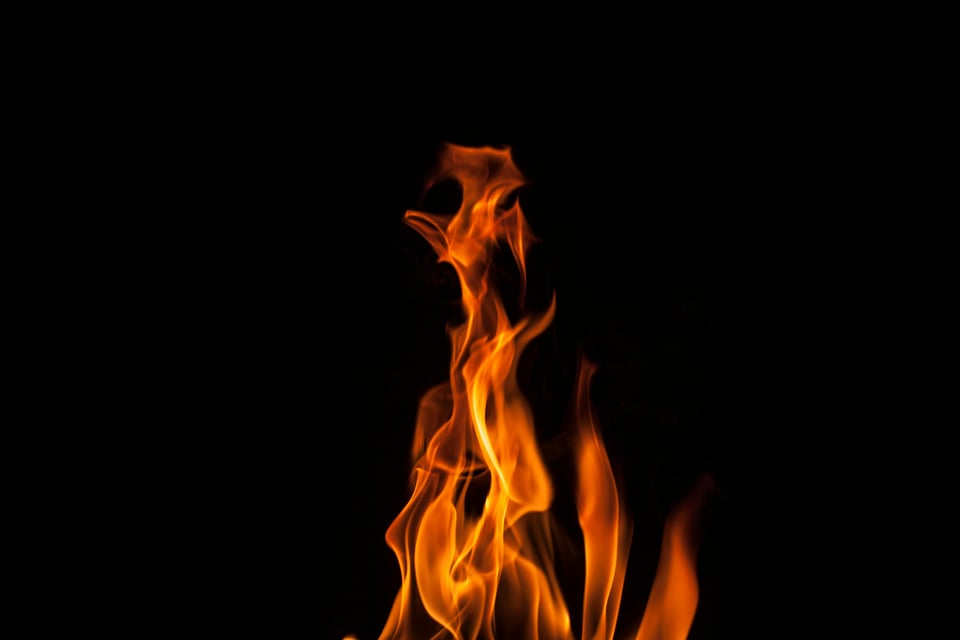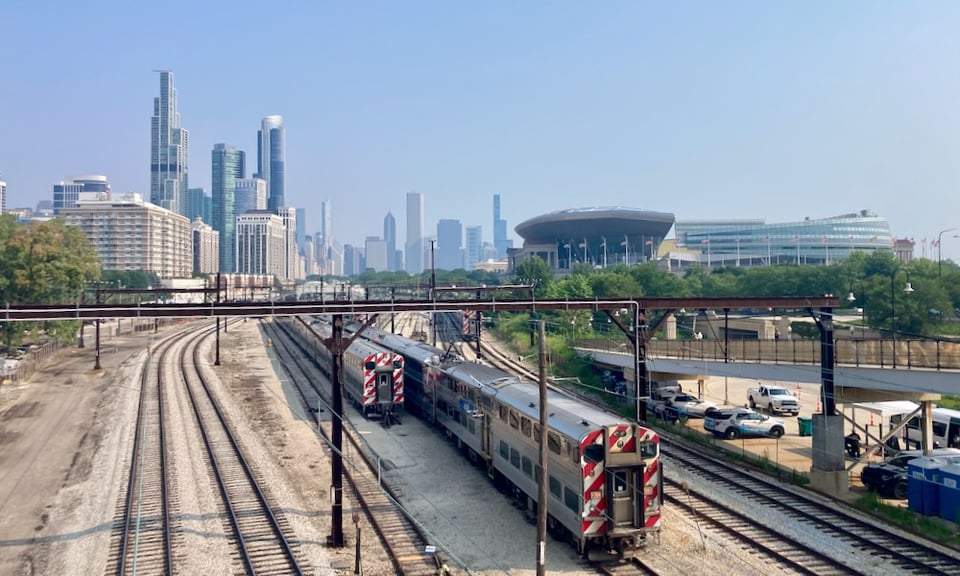The Death of Self-Preservation
Being the church in and for the world

An episode of a Christian podcast I sometimes listen to recently featured a discussion between the host and his sociologist guest about the attendance declines affecting most U.S. denominations. While there has been recent speculation that some younger people are being attracted to church, the sociologist pointed out that the overall trend remains pointedly and consistently downward.
Jogging slowly up Drexel Boulevard in the mid-summer Chicago humidity, listening to this discussion through my earbuds, I found myself surprised by my response to yet one more prediction of the American church’s decline: Who cares?
I was surprised because I do, in fact, care. I helped start the church I now pastor and our congregation hopes to plant a new church in the next couple of years. I ache for those pastor friends who struggle to help their dwindling congregations imagine the possibility of vitality. I think we need more churches – many more churches – and the sight of decaying, emptying sanctuaries brings a literal ache to my chest.
But still, who cares?
For as long as the two decades I’ve been a pastor, my colleagues and I have been subject to one harbinger of ecclesiastical death after another. We’ve watched consultants and conferences profit from this message of doom and been made to wade through one prepackaged solution after the next. And despite my skepticism, I’ve wanted it all to work– churches to reverse their decline, sanctuaries to fill with seekers, the gospel to be proclaimed in all of its world-upending beauty.
Why, then, did this latest conversation land so flat? Why can’t I will myself to care?
I think it has something to do with the genocide visibly unfolding in Gaza. With the barely noticed civil war decimating Sudan. With the impacts of climate change inflaming and flooding vulnerable communities. With this country’s lurch toward authoritarianism, enabled and embraced by so many Christians despite the terror unleashed on our fellow sisters and brothers. What capacity is there to bemoan dwindling church attendance when the world outside our sanctuaries quakes and grieves and burns?
Having been arrested for his part in an attempt to assassinate Adolph Hitler, Dietrich Bonhoeffer used the occasion of his godson’s baptism in the spring of 1944 to reflect on living “in the midst of a world war, which 90 percent of humankind does not want but for which they are giving their lives and goods.” During his months in prison, the pastor-theologian had been thinking about what Christian faithfulness looked like in a world ravaged by globalized warfare. What place, if any, would there be for the church in such a world? Especially since so much of the church had been co-opted by the war-making machine.
“Our church,” wrote Bonhoeffer, “has been fighting during these years for its self-preservation, as if that were an end in itself. It has become incapable of bringing the word of reconciliation and redemption to humankind and the world.” This, I think, is the source of my disinterest in yet another hand-wringing session about the future of Western Christianity. For so long we have focused on our own survival and now, as we are surrounded by innumerable threats to actual flesh-and-blood life, we find we have little to offer a teetering world.
What use is a church growth strategy to a mother watching her child waste away as food rots in distant storage sheds? What use are our conferences with their platforms and book tables and ticketed admissions to a family breathing toxic air and drinking poisoned water and whose elected officials are vehemently disinterested in their survival? What use are our well-crafted and soothing sermons to a community quivering at the possibility of another Made-in-the-USA drone strike. What use are our books, curriculum, and programs promising congregational revitalization to the children watching their father snatched viciously from their grasping hands by masked, unidentified ICE agents?
I can find no plausible reason to believe ourselves to be Christians in this sort of a world while caring at all about our own self-preservation. “So the words we used before must lose their power, be silenced,” confessed Bonhoeffer with the clarity that comes with prison bars and bombing runs. I wonder, can we stand to hear the prophet’s indictment, applied to our own empty, self-serving words and rituals? “Bringing offerings is futile; incense is an abomination to me… When you stretch out your hands, I will hide my eyes from you; even though you make many prayers, I will not listen; your hands are full of blood.” (Isaiah 1)
What, other than the grossest idolatry, are our efforts to preserve ourselves while our neighbors are led to the slaughter? What are our sermons and songs, filled as they are with theological generalities and devoid of even a single troubling word about evil’s creeping shadow, but vindication for those who cloak their plunder in veils of religiosity? If Isaiah was right, the hands we raise so piously in worship each Sunday are met by a God who recoils at our neighbors’ blood with which they are stained.
Bonhoeffer believed that recognizing our complicity with the profoundly broken state of our world left two ways for Christians to be faithful, “through prayer and in doing justice among human beings. All Christian thinking, talking, and organizing must be born anew, out of that prayer and that action.” Abandoning our old and futile self-preservation strategies does not mean abandoning the church; it means choosing to be the church in and for the world.
The be the church in the world is to recognize the reign of Jesus over the cosmos and not just our programs and priorities. It is to follow Jesus wherever he leads, leaving behind boats and nets, parents and siblings, comfort and respect. A church that has made its home in the world will suffer the ill-repute that comes from befriending sinners and the suspicion that comes with loving enemies. It will find its prayers oriented less and less toward its own legacy and more toward the flourishing of its most vulnerable neighbors.
A church for the world will live with an against-all-odds kind of hope. When others succumb to despair or cynicism, these communities will testify that struggle and suffering are not the end, that God is still righteous and that divine holiness is still a consuming fire. A church for the world will learn to clear the debris of industrialized exploitation so as to discern the grain of their particular place that they might harmonize their work and rest with creation. The ordinary women and men who are these churches, like the saints who’ve proceeded them, will speak and live the gospel with Holy Spirit fire shut up in their bones. To be for the world, the world God still so loves, is to seek justice not in the abstract but for specific people trembling under particular threats to their dignity and survival.
In 1936, for an early edition of The Catholic Worker, Peter Maurin wrote of the Catholic Church that its leaders “have taken the dynamite of the Church, have wrapped it up in nice phraseology, placed it in an hermetic container and sat on the lid.” What are our church-as-usual activities in this apocalyptic age but a sealed-up, hermetic container constraining the dynamite of the gospel? Maurin may have well anticipated our own self-preserving efforts when he wrote, “It is about time to blow the lid off.”
We blow the lid off the dynamite of the gospel by offering ourselves, in Paul’s words, as living sacrifices. We, with tongues of fire dancing above our heads, offer ourselves in worship to the God who was never impressed by our pathetic attempts to save ourselves. Let the insular institutions crumble. Let the selfish strategies rush away like chaff. Let the self-soothing stories we’ve broadcast about our cultural relevance be torn up and scattered away. Let us then, borrowing again from Isaiah 1, “learn to do good; seek justice; rescue the oppressed; defend the orphan; plead for the widow.”
Let self-preservation die so that the church in and for the world might live.
(Photo credit: Francisco Paggiaro.)
The View From Here

Smoke from Canadian wildfires made the view a bit hazy, but earlier this week my youngest son and I enjoyed a 45-minute bike ride up to one of our favorite outdoor coffee shops.
Vacation!
Today begins my summer break and I’m planning to mostly stay away from social media and online news. My word for this downtime is slow and I’m guessing the newsletter will slow down a bit as well. A huge thanks to those readers who choose to make the occasional or even monthly contribution to this intermittent missive. There have been enough new subscribers recently that my monthly platform fee bumped up and your donations have covered that amount with enough left over to treat Maggie to dinner last night. Thanks!